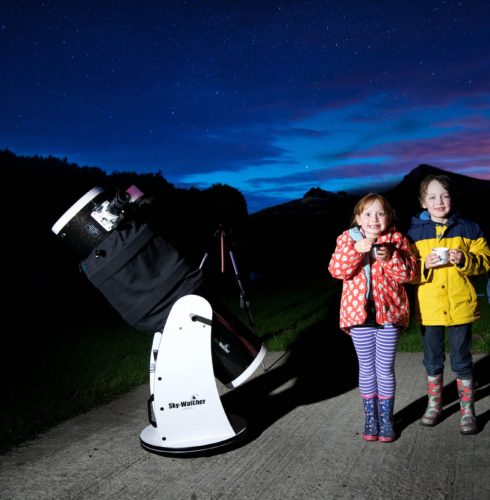Invitation to count the stars
On 19/02/2020 At 12:12 am
Category : entertainment and leisure news, Missed a ThameNews story?, Thame news
Responses : No Comments
THIS February CPRE invites everyone to join in with Star Count 2020, a fun and easy way to enjoy the wonders of the universe. By simply counting the number of stars they can see in the Orion constellation between 21 and 28 February, those taking part will help map the best and worst places to see the awesome sight of a star-filled night sky.

Throughout history people have gazed up at the magical starry night sky in wonder and used the cosmos to navigate. Looking at the stars we get a feeling of tranquillity rarely experienced in today’s frantic lives. Seeing dark skies full of stars is something we associate with the countryside, and part of reconnecting with the natural world. However, places to view these spellbinding sights are becoming harder to find, even in the countryside.
Last year’s Star Count results showed that light pollution, often caused by the glow and glare from street and outdoor household and sports lighting, is making beautiful starry skies a rare sight for many of us. Just 2% of people who took part in Star Count 2019 told us they were viewing a truly dark sky.
Helen Marshall, Director CPRE Oxfordshire said: ‘A starry night sky is one of the most magical sights the countryside can offer, connecting people to such an important part of our natural heritage. But many people don’t get to experience this beauty due to light pollution. We want to get people out counting the stars and helping to save them now and for future generations to enjoy!’
As well as preventing us from seeing the stars and wonders of our Milky Way galaxy, the Northern Lights, and meteors (shooting stars), light pollution has serious impacts. It disrupts the natural behaviour of wildlife and can be harmful for our health. It’s also a waste of energy, at a time when many people are trying to live more sustainably.
Using the results from the annual Star Count, CPRE will lobby Government and local authorities to tackle light pollution, and also highlight which ‘dark sky’ areas need to be protected and enhanced by strong policies.
CPRE’s Star Count is supported by the British Astronomical Association’s Commission for Dark Skies (CfDS).
Expert astronomer Bob Mizon from the CfDS said: ‘As well as being a wonderful opportunity to get outdoors and enjoy the night sky, Star Count is starting to give us some really useful information. We’re hoping many more people will join in this year and give us the best map ever.’
To take part, star counters are asked to choose a clear night between Friday 21 and Friday 28 February. During this time the moon is less bright, making it easier to carry out a cosmic census, although CPRE will accept results from any nights in the second half of February. Without using a telescope of binoculars, people can then count the stars within the rectangle shape formed by Orion, except the four stars on the outer corners, then submit their results at cpre.org.uk/starcount



